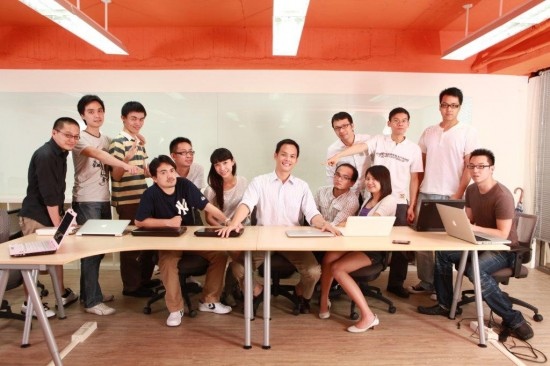前言:
Y combinator的How to Start a Startup. 一篇值得拜讀的好文章, 以下一方面節錄文中個人很喜歡的部分, 一方面也分享過去創業的心得, 為了跟原文方便參照比對, 以下將按照原文順序分七個主題段落做節錄跟分享, 希望對創業的大夥們有所幫助。本篇進入原文討論進入尾聲了, 原文討論兩個重點, 前半段告誡所有創業家, 錢要省省地花, 後半段鼓勵大家創業。
Not Spending It 不要亂花錢
When and if you get an infusion of real money from investors, what should you do with it? Not spend it, that’s what. In nearly every startup that fails, the proximate cause is running out of money.
節錄一:錢花越慢, 有更多時間學習跟建立好服務, 也有助建立節約成本的文化
To make something users love, you have to understand them. And the bigger you are, the harder that is. So I say “get big slow.” The slower you burn through your funding, the more time you have to learn.
The other reason to spend money slowly is to encourage a culture of cheapness.
節錄二:吃飯真是一個點子碰撞的好時機,
The key to productivity is for people to come back to work after dinner. Those hours after the phone stops ringing are by far the best for getting work done. Great things happen when a group of employees go out to dinner together, talk over ideas, and then come back to their offices to implement them. So you want to be in a place where there are a lot of restaurants around, not some dreary office park that’s a wasteland after 6:00 PM. Once a company shifts over into the model where everyone drives home to the suburbs for dinner, however late, you’ve lost something extraordinarily valuable. God help you if you actually start in that mode.
節錄三:不要亂花錢在雇員上, 雇員是很可怕的成本
The most important way to not spend money is by not hiring people. I may be an extremist, but I think hiring people is the worst thing a company can do. To start with, people are a recurring expense, which is the worst kind. They also tend to cause you to grow out of your space, and perhaps even move to the sort of uncool office building that will make your software worse. But worst of all, they slow you down: instead of sticking your head in someone’s office and checking out an idea with them, eight people have to have a meeting about it. So the fewer people you can hire, the better.
個人感想:
省錢節約上述已經說得很清楚了, 在此分享讓我最有感觸的一段話, 在appWorks中餐跟晚餐時間, 是我覺得產生創意最好的時機, 我很享受這段時間所帶來的成長, 每次早會跟演講後, 我們總是在這時光中得到意想不到的點子跟solution, 我覺得真的很神奇, 我想很多創業家應該也很有這樣感觸吧!
Should You? 你應該創業嗎?
節錄一:年紀在23~38, 又想找到解決根本財務問題的hacker
So who should start a startup? Someone who is a good hacker, between about 23 and 38, and who wants to solve the money problem in one shot instead of getting paid gradually over a conventional working life.
節錄二:年紀會帶來經驗, 成功經驗也好, 負面經驗也很重要
I put the lower bound at 23 not because there’s something that doesn’t happen to your brain till then, but because you need to see what it’s like in an existing business before you try running your own. The business doesn’t have to be a startup. I spent a year working for a software company to pay off my college loans. It was the worst year of my adult life, but I learned, without realizing it at the time, a lot of valuable lessons about the software business. In this case they were mostly negative lessons: don’t have a lot of meetings; don’t have chunks of code that multiple people own; don’t have a sales guy running the company; don’t make a high-end product; don’t let your code get too big; don’t leave finding bugs to QA people; don’t go too long between releases; don’t isolate developers from users; don’t move from Cambridge to Route 128; and so on. [8] But negative lessons are just as valuable as positive ones. Perhaps even more valuable: it’s hard to repeat a brilliant performance, but it’s straightforward to avoid errors.
節錄三:年紀會帶走精力, 創業的精力是很重要的
The other cutoff, 38, has a lot more play in it. One reason I put it there is that I don’t think many people have the physical stamina much past that age. I used to work till 2:00 or 3:00 AM every night, seven days a week. I don’t know if I could do that now.
節錄四:年紀越大容忍風險的程度越低
Also, startups are a big risk financially. If you try something that blows up and leaves you broke at 26, big deal; a lot of 26 year olds are broke. By 38 you can’t take so many risks– especially if you have kids.
節錄五:給使用者需要的, 跟他們收高於成本的錢回來, 這樣很難嗎?
If you want to do it, do it. Starting a startup is not the great mystery it seems from outside. It’s not something you have to know about “business” to do. Build something users love, and spend less than you make. How hard is that?
個人感想:
作者最後鼓勵大家在適當的年紀創業, 創業沒甚麼大不了的, 給使用者需要的服務, 跟他們收高於成本的錢回來, 這樣很難嗎? 雖然我覺得這不容易, 但是我很喜歡這樣詼諧輕鬆的態度去看待創業。
回到台灣的環境, 現在確實是創業好時機, 台灣跟美國很大的不同在於科技人才的動向, 美國科技人才在大公司所得一般, 所以大多科技人才都以自己創業為目標, 但是台灣的科技人才大多被科技大廠所網羅一空, 因為台灣科技業利用會計的漏洞, 慷股東之慨, 大發股票給科技人, 讓科技人收入相當優渥, 不過, 隨著分紅費用化跟科技業成長趨緩, 以賣肝換大錢的時代過去了, 創業的機會成本大大地降低, 讓許多科技人出走創業, 小公司第一次開始有網羅好人才的契機, 人才開始釋放出來了, 資本也開始願意投資了, 另一波網路創業趨勢開始了, 一起再創台灣另一波經濟的高峰吧!




 留言列表
留言列表